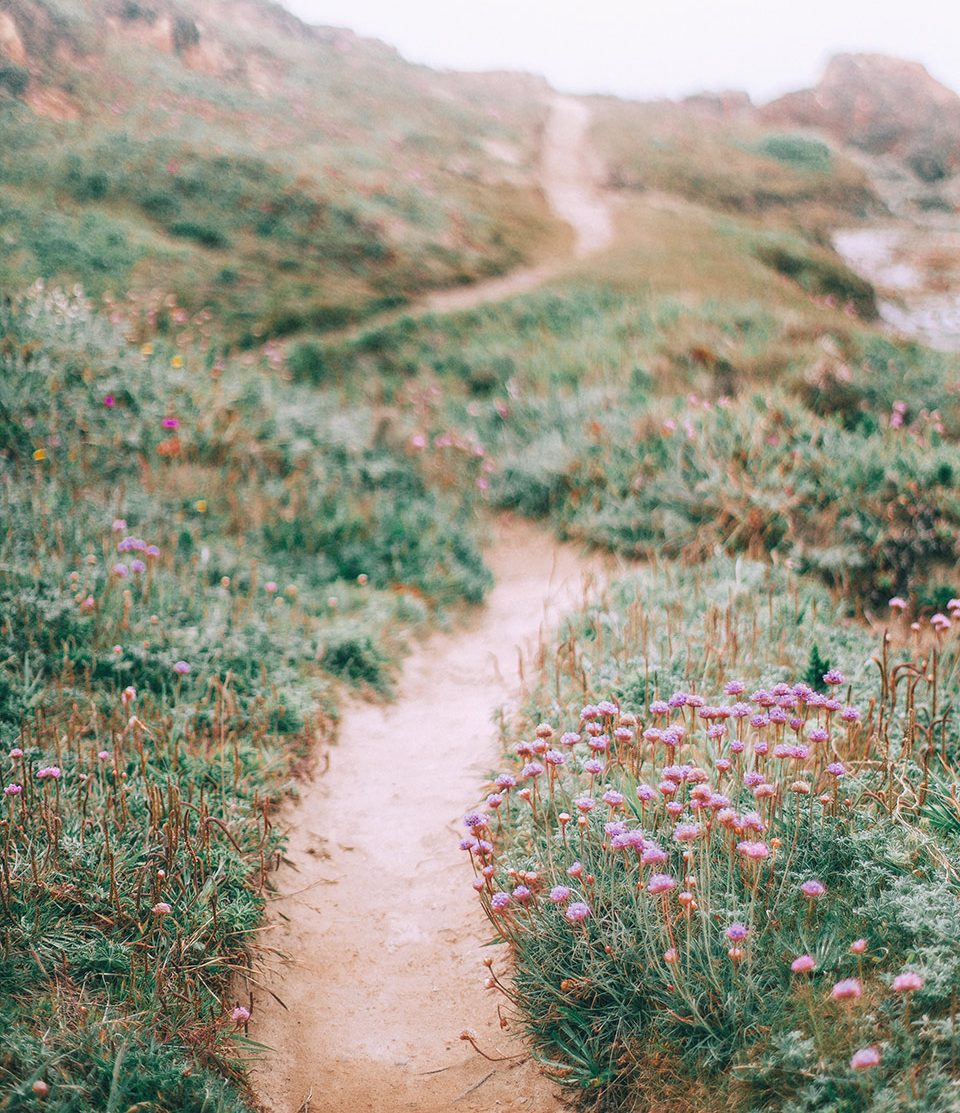
Counselling
The Initial Conversation
Before we begin working together, I offer a free 20-minute phone or online consultation. This isn't therapy, it's simply a chance for us to meet, for you to ask questions, and for both of us to get a sense of whether we might work well together. Finding the right counsellor is a bit like finding a good pair of shoes. What fits one person perfectly might not suit another at all. During this conversation, I'll explain a bit about how I work, and you can share as much or as little as you feel comfortable with about what's bringing you to counselling. There's no obligation to book sessions afterward; it's completely up to you.
"When you’re going through hell, keep going"

My Approach: Person-Centred Counselling
Person-centred counselling is built on a simple but powerful idea: you are the expert on your own life. At the heart of my approach is the relationship between us, rather than telling you what to do or giving advice, together we can explore your thoughts and feelings without judgement. This approach trusts that you have the inner resources and wisdom to find your own way forward. Sometimes these just get buried under life's complications.
I won't be sitting silently making notes or analysing you. Our sessions are genuine conversations where I'm actively engaged, asking questions that help deepen understanding, reflecting back what I hear to help clarify thoughts, and walking alongside you as you explore what's happening in your life. I don't have a set agenda or roadmap. You decide what we talk about and the pace we go at. My role is to provide a safe, supportive space where healing and growth can happen naturally.

Walk and Talk Therapy
Some people find sitting face to face in a room a bit intense or intimidating. That's where walk and talk therapy comes in, exactly what it sounds like: we walk outdoors while we talk. I offer this option in and around Maidenhead, with locations we can discuss based on what works for you.
Walking side by side can feel more natural and less pressured than sitting opposite each other. The rhythm of walking often helps process thoughts and emotions, and being in nature has its own calming effect. Research shows that being outdoors can reduce stress hormones, lower blood pressure, and improve mood, adding another dimension to the therapeutic process.
Don't worry, this isn't a workout! We go at your pace, and there's always the option to sit on a bench if you prefer. We can adapt to the weather and your energy levels on the day. And just like indoor counselling, our conversations remain completely confidential. I'm careful about choosing routes where we can talk privately.
Issues I Can Help with?
I work with adults experiencing a wide range of difficulties, including anxiety, depression, relationship problems, bereavement, a cancer diagnosis, self-esteem issues, and major life transitions. Each person's experience is unique, and I tailor my approach to your specific needs. If you're unsure whether counselling might help with your particular situation, please get in touch for a chat.
Trauma
I have particular experience working with trauma, especially childhood trauma. The impact of difficult or overwhelming past experiences can show up in many ways, from anxiety and relationship difficulties to physical symptoms and feelings of disconnection. I provide a space where traumatic experiences can be processed at your own pace, helping you make sense of the past without being overwhelmed by it. Many clients find that understanding how trauma affects the mind and body can be the first step toward healing.
Relational Issues
Relationship counselling isn't just for couples, it can be hugely beneficial for navigating challenging dynamics with family members, friends, and colleagues too.
Many people struggle to build the relationships they desire, often held back by a fear of judgment or the worry of not being liked, which can limit their social interactions. Through counselling, we can work together to identify unproductive communication patterns and explore effective ways to assert your needs and set boundaries.
Counselling can help you respond more thoughtfully instead of reacting impulsively. It equips you with the skills to develop more respectful, understanding, and positive relationships in every area of your life.
Ready to Take the Next Step?
If you have any questions or would like to book an initial consultation, please get in touch through the contact page or email me directly. Taking that first step can feel daunting, but reaching out is often the hardest part.
Get in touch
Thank You for Reaching Out
Taking that first step to get in touch can be the hardest part of seeking support, so thank you for being here. Whether you're ready to book an initial consultation or just have questions about how counselling might help, I'm here to listen.
The easiest way to contact me is by email. I aim to respond to all enquiries within 24 hours during weekdays.
Contact Form
Alternatively, you can use the contact form to send me a message. Please include your preferred contact method and any information you'd like me to know before getting in touch.
What Happens Next?
After you get in touch, we'll arrange a free 20-minute consultation by phone or online. This gives us both a chance to see if we might work well together. There's no obligation to book further sessions after this initial conversation.
I look forward to hearing from you and potentially being part of your journey.
Some frequently asked questions
How long does counselling last?
There's no one-size-fits-all answer to this. Some people find that a few sessions help them through a specific situation, while others benefit from longer-term work. We'll regularly review our progress together, and you can decide to pause or end counselling whenever you feel ready. There's no minimum commitment beyond your first session.
What's the difference between counselling in person and online?
In-person sessions offer face to face connection in a dedicated space, while online counselling provides flexibility and accessibility from your own environment. Both can be equally effective. It really comes down to your preference and practical considerations. Some people start with one format and switch to another, which is absolutely fine.
Is everything I say confidential?
Yes, with some important exceptions. I follow the BACP ethical framework, which means I would need to break confidentiality if I believed you or someone else was at serious risk of harm, or if required by law. I'll always try to discuss this with you first if possible. I also discuss my work with a supervisor, but this is done anonymously and is part of ensuring I'm providing the best support possible.
What happens in our first proper session?
Our first full session is about getting to know each other a bit better. I'll ask you to complete some simple paperwork and we'll talk about what's brought you to counselling and what you hope to get from it. There's no pressure to share anything you're not comfortable with. We go at your pace. It's also a chance for you to get a feel for how I work and ask any questions you might have.
Do I have to walk during walk and talk therapy?
Not at all! The "walk" part is completely optional. Some clients prefer to sit on a bench. Others might walk for part of the session and sit for the rest. It's all about what feels comfortable for you on the day. The key benefit is being outdoors rather than the walking itself.
What if the weather is bad for a walk and talk session?
We always have a backup plan. If the weather turns nasty, we can reschedule, switch to an online session, or use my indoor therapy space if available. Before starting walk and talk therapy, we'll discuss these options so you know exactly what to expect if the British weather decides not to cooperate!
Do I need special clothing or footwear for walk and talk?
Nothing special required, just comfortable clothing and footwear appropriate for the weather. We won't be hiking up mountains or power walking, just gentle strolling on flat, accessible paths. Dress as you normally would for a casual walk in the park.
What if I'm worried about privacy during walk and talk therapy?
This is a common concern. I carefully choose routes that offer privacy, avoiding busy areas. If we do see someone approaching, we can pause the conversation or switch to a more neutral topic. I've found that most people are absorbed in their own worlds and pay little attention to others. That said, if privacy is a major concern, indoor or online sessions might be better options for you.
What if I'm nervous about walk and talk therapy?
That's completely normal! Many people worry about bumping into someone they know, getting tired, or what happens if the weather turns bad. We'll discuss all these practical aspects before starting and can always have a backup plan. We can start with a short walk to see how it feels, or even begin with traditional counselling and try walk and talk later if you're curious. The most important thing is that you feel comfortable.
GDPR info
©Ali Griffin Counselling
powered by WebHealer
